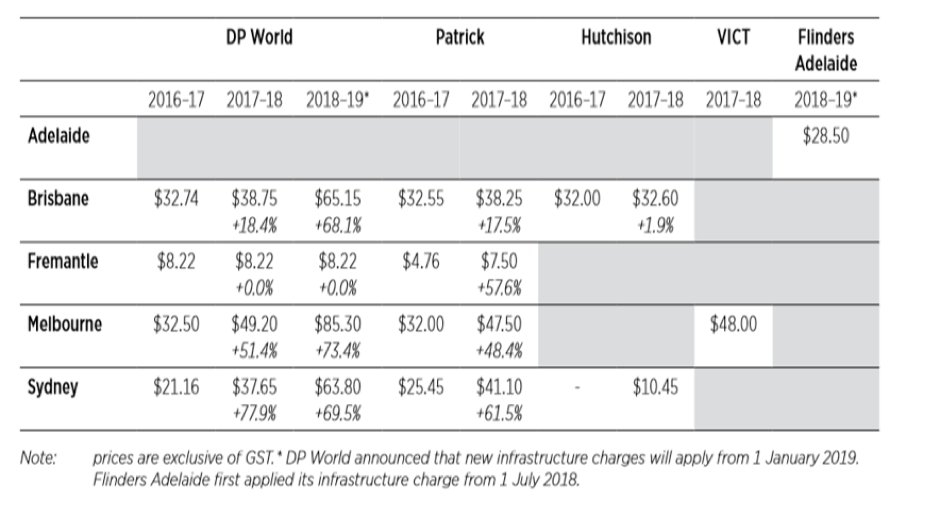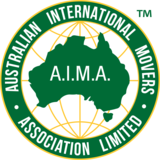The latest round of port fees announced by Australia’s major stevedoring companies have resulted in Victorian and Federal Senate inquiries.
The latest fee increases by DP World Australia which have been termed ‘Infrastructure charges’ by the stevedoring companies come into effect in most ports on 1 January 2019 and are widely regarded as an assault on the country’s importers and exporters. Indeed since 2017 there has been an 1024% increase in port charges in Melbourne where the charge has increased from $3.60 in April 2017 to $85.30 in January 2019, 247% increase in Sydney and 86% in Brisbane.
These increases come on top of the 88% increase in Vehicle Booking System (VBS) slot fees charged by One Stop to enable access by hauliers to the wharf.
As if to add further insult to injury, a new Biosecurity Import Levy will come into effect on 1 July 2019, across all Australian jurisdictions. The levy is set to commence at $10.02 per TEU on all import containers plus a $1 per tonne fee.
The increased infrastructure charges, VBS fees and increased ancillary charges such as Late Arrival/Wrong Zone fees, No Show fees, Side Loader Fees, seasonal BMSB quarantine surcharges and Manual Processing fees have resulted in an average $140 per container increase in terminal related costs in Melbourne and $110 per container in Sydney and Brisbane over the past 2 years (excluding the soon to be enacted Biosecurity Import Levy which will add a further $20 - $35 per TEU).
Transport operators have had little choice other than to pass on these exorbitant fee increases to their customers and consumers in general.

AIMA has via its affiliation with APSA (Australian Peak Shippers Association) voiced its concern to all levels of government and has made formal submissions to the ACCC (Australian Competition and Consumer Commission), which resulted in:
- a report to the federal government recommending regulation of the Australian shipping industry; and
- will inform the various governmental inquiries proposed to take place in 2019.
Critically, the ACCC identified that the increased competition for stevedoring services due to the rapid consolidation of shipping lines has resulted in a transfer of charges away from traditional Port Terminal Handling Charges payable by the lines for the use of the terminals and instead these charges are being imposed on hauliers and transport operators by way of massively increased levies and charges now effectively being borne by importers and exporters like AIMA and its members.
